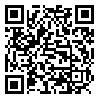BibTeX | RIS | EndNote | Medlars | ProCite | Reference Manager | RefWorks
Send citation to:
URL: http://ijn.iums.ac.ir/article-1-690-en.html
Abstract
Background and Aim: The diabetic foot ulcer is one of the most common and devastating complications of diabetes mellitus. Patient education about the prevention of foot ulceration is among the most challenging issues. The purpose of this study was to examine the effects of group and individual patient education on the level of the knowledge, attitude and practice of self-care in patients with diabetic foot ulcer.
Material and Method: In this quasi-experimental study, the samples consisted of 80 patients with type 2 diabetes randomly allocated to two groups to receive either individual or group education (40 patients in each group). The patients received one day education program about foot care. The patients’ knowledge, attitude and practice of self-care were assessed before and after the interventions and t he data were compared between two groups. The authors declare that they have no conflict of interests.
Results: The finding showed that the level of knowledge about foot care was poor in most patients of both groups.The attitude was positive and the practice was moderate. The level of the knowledge (P=0.09), attitude (P=0.21), and practice (P=0.01) of both groups improved after educational program. There was not a statistically significant difference between two groups in terms of knowledge and practice improvement. There was a statistical significant difference between two groups in terms of attitude improvement.
Conclusion: The effects of group and individual education on diabetic foot self-care are similar. Group education is more economical.
Received: 2009/12/28 | Accepted: 2014/08/25 | Published: 2014/08/25
| Rights and permissions | |
 |
This work is licensed under a Creative Commons Attribution-NonCommercial 4.0 International License. |




